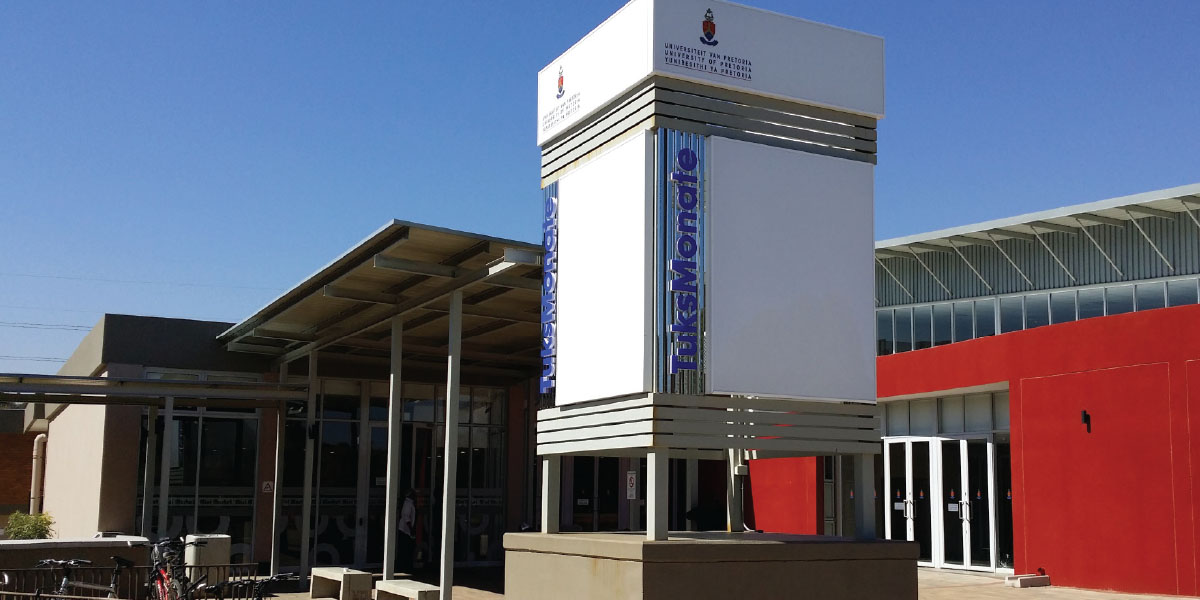The official opening in May of TuksMonate, a new dining hall facility at the University of Pretoria, in South Africa, brings to fruition a long planning process begun some eight years ago. Centrally located on campus, the facility is now the sole site for the dining function, allowing for the transformation of the existing dining halls in each of five residential buildings into multipurpose facilities, offering integrated study areas and indoor recreational spaces for students.
The overall approach was to provide holistic education as a central part of university students’ residence life. Quality student accommodation is a critical component of this strategic concept held by the university.
Multifunction to Meet Demand
TuksMonate itself consists not only of dining space but includes a multipurpose hall that can be used for major events at the university and can also serve as a study area complete with Internet and WiFi access.
The new facility serves the 8,000 students who live in residence halls, a number that continues to grow with an impressive rate of demand despite the advent of distance learning and online education. This year alone, the university received more than 42,000 applications from prospective first-year students, only 11,000 of whom gained admission.

To address the upsurge, says Professor Antonie de Klerk, executive director for infrastructure and sport, “Construction has started at two sites, with the aim of increasing the number of beds by about 400 by 2015.”
Additional facilities and residential housing are in high demand for several reasons:
- The University of Pretoria is an institution of choice, being the largest of the research-intensive universities in South Africa and having a diverse student profile.
- The university attracts students from all nine provinces of South Africa.
- A sizable number of international students need safe and affordable accommodation.
The plans are not only about expansion, but about ensuring that current facilities are modernized on an ongoing basis. In 2015, for example, “We are planning to upgrade two women’s residences that accommodate 576 students,” says de Klerk.
Collaborative Concepts
Strategic discussions regarding the University of Pretoria’s ongoing commitment to quality services is not restricted to resources for only housing and learning. The university’s Strategic Plan 2025 addresses the institution’s broader goals of positioning its growth “within a changing socio-political, economic, and higher education environment.”
The university’s leaders see this as a commitment to developing an environment where first-year students can quickly begin to learn, grow, and develop into the leaders and citizens who will make South Africa a better place than it is today. This ideal is in line with the new policy framework published in a Department of Higher Education and Training white paper.
Professor Themba Mosia, vice principal of Student Affairs and Residence Affairs and Accommodation, notes: “We must keep in mind that it is a difficult task to cater to and satisfy all individuals’ needs. Opening TuksMonate gives us an opportunity to reflect on the changes that we’ve made and the positive impact they have had on students.”
Adds Mosia, “We also realize the patience it has taken to realize the dream that started eight years ago and that succeeded in great part due to the passion of Professor Roelf Visser, our late director of residence affairs and accommodation, whose legacy the dream represents.”
SUBMITTED BY Cheryl De La Rey, vice chancellor and principal, University of Pretoria, South Africa


